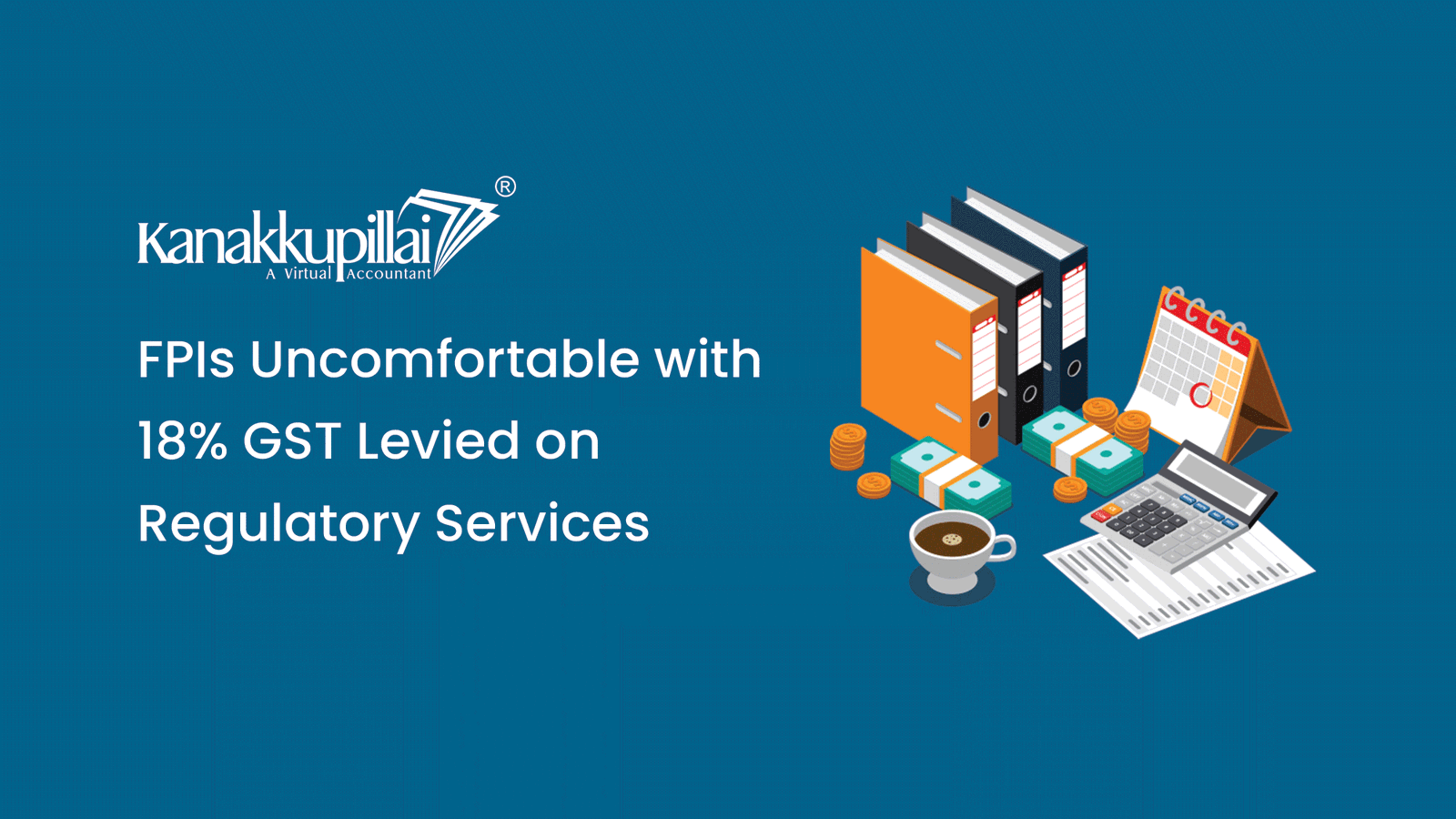![]()
FPIs Uncomfortable with 18% GST Levied on Regulatory Services
The “Make in India” programme and the numerous tax breaks offered to exporters are examples of the present Indian government’s desire to increase the quantity and quality of Indian exports and thereby increase the reach of our products worldwide. Even though the GST (Goods and Services Tax) was implemented on July 1 in 2017, there is still some uncertainty among exporters over the potential effects of the new system on this sector. The impact of GST on exported goods and the tax paid on the inputs/raw materials used are two things that traders are interested in learning about. On June 28, 2017, the Indian government released a set of notifications and instructions for the general public regarding the applicability of the CGST, SGST, UTGST, and cess and GST rates in an effort to clear up any ambiguities.
Levying of GST on Exports
Exports of products or services are regarded as zero-rated supplies. No GST will be assessed on the export of any products or services.
Under the former laws, the tax paid on inputs for the export of exempt items was eligible for a duty drawback for the taxpayers. The duty drawback claim process was a lengthy, confusing and difficult process.
Only customs duties paid on imported inputs or central excise taxes paid on specific petroleum or tobacco products used as inputs would be eligible for a duty refund under the GST. And regarding the reimbursement of this tax that exporters had already paid on the inputs, there was some ambiguity.
But the Indian government issued a guideline on the subject, which has helped to put aside certain concerns of input tax credit on exports that are zero-rated.
But now there is a scenario of confusion for the FPIs.
Foreign portfolio investors which are called in short as FPI, are alarmed and confused by the Centre’s recent decision to apply the Goods and Services Tax or GST to services provided by the market regulator, the Securities and Exchange Board of India or SEBI. They worry that the choice would lead to GST being applied to “export of services,” which is presently a zero-rated supply under GST.
According to two experts having knowledge and analytical idea regarding the situation, it seems that they have decided, custodians of FPIs will be taking the current decision of the Centre and the scenario for discussion up with the market regulator and the Ministry of Finance or MoFand will seek clarity on the applicability of the fee, so as to keep at bay any confusions arising.
The GST levy of 18% is high as per what was stated by FPI experts. It is an issue of principle, but that is more crucial and essential. Services provided to FPIs are for entities located outside of the country, but GST is a local tax and this brings in a state of absurdity and confusion. In other words, the export of services is subject to GST. Future FPI difficulties could result from this, according to one of the sources mentioned above.
Exports of products or services are regarded as zero-rated supplies under the GST regulations. This means that either at the input stage or at the level of the finished product, GST must not be applied to goods or services that are exported from the country India. The market regulator recently made it clear that 18% GST would be imposed on all fees charged by all market infrastructure organisations, including stock exchanges and individuals operating in the securities market. After deciding to revoke the exemption given to the services rendered by SEBI, the government provided the clarification which caused the current absurdity amongst the FPI’s. The FPI registration fee as well as other costs that custodians pay to SEBI on behalf of foreign investors would therefore be subject to GST which would not only increase the cost but also affect the liberality and smoothness to trade.
FAQ on GST Registration
[accordions id=”11591″]Posted by Kanakkupillai.com
Kanakkupillai is dedicated to being your reliable partner in every step of your business journey. With affordable and expert assistance, our primary goal is to educate our customers i.e., you on legal requirements, ensure compliance, and support you throughout your business lifecycle.





